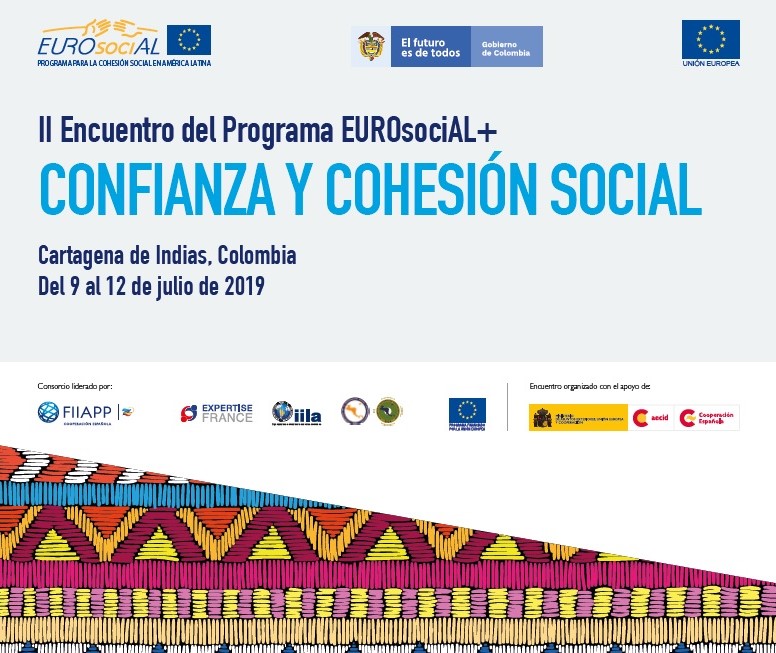A total of 200 participants from 30 countries in Latin America and the European Union will debate in Cartagena de Indias on the rebuilding of trust as a determining factor for democratic coexistence and social cohesion.

FOR MORE INFORMATION ABOUT THE MEETING, SEE THE EUROSOCIAL MEETING SECTION
The EUROsociAL+ Program is midway through its look at trust, a classic concept of social sciences and once again at the core of current debates. The second Meeting of the EUROsociAL+ Programme which will take place in Cartagena de Indias (9-12 July) is intended to be a chance to share and explore the concept of trust as an essential component of social cohesion and new cooperation instruments. The Presidential Agency for International Cooperation, APC-Colombia, and the Delegation of the European Union, in collaboration with EUROsociAL, are coordinating the most important annual event of the European Commission Reference Programme for regional cooperation in Latin America.
In line with the Euro-Latin American dialogue and peer exchange model, EUROsociAL+ has brought together high-level decision-makers in the public policy field, professionals involved in planning and who have technical knowledge of national institutions in Latin American countries that participate in EUROsociAL+; national focal points of the Programme in each of the countries; top-level officials of the European Union Delegations in Latin America, and those responsible for the European Union’s cooperation strategy (EuropeAid / European Commission, European External Action Service).
There will be several debates on how to inspire greater confidence at different levels in the framework of the EUROsociAL programme and, more broadly, within the framework of the European Union – Latin America and the Caribbean bi-regional agenda on social cohesion. This will be the central theme of the Meeting based on the policies currently supported by the Programme in the three policy areas: democratic governance, gender equality and social policies, coordinated by FIIAPP, Expertise France and IILA, respectively, which together with SISCA and SICA, form the consortium of this European Union Programme of public policies for social cohesion in Latin America.
The debates will also include another theme, which is highly complementary to the former: how to cooperate to support public policies for social cohesion, based on gap-closing, dialogue and trust? This theme is part of the current debate on “development in transition”, and on cooperation with middle-income countries where, despite an increase in gross domestic product, structural inequalities and risks of setbacks persist, leading citizens to demand greater rights and access to quality public services.
In recent years, and in several regions, some convergence has been observed in analyses that identify loss of trust as a central element in changing relationships between institutions and citizens. Indeed, rebuilding confidence and expectations while improving living conditions appear to be decisive factors for democratic coexistence and social cohesion, more than enough reason for this new tack, embarked on with support from the Training Centre of the Spanish Cooperation in Cartagena de Indias, Colombia, for the EUROsociAL “community”.



